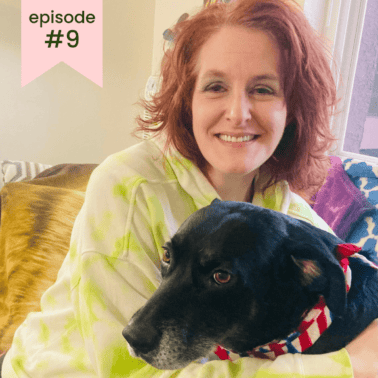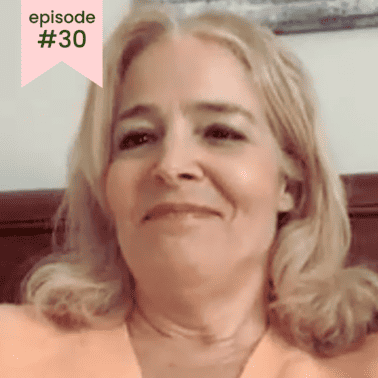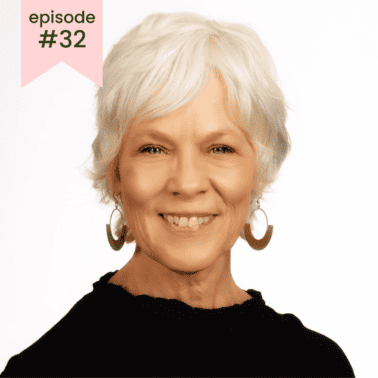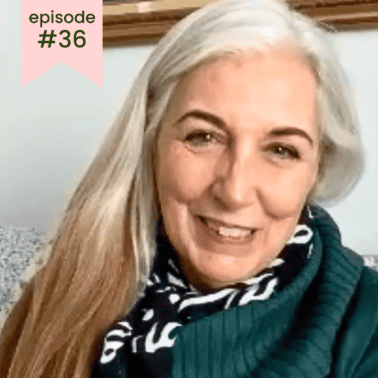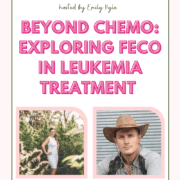Meet Jeff Wyatt, a courageous individual who turned his leukemia diagnosis into an exploration of alternative treatments. Jeff shares his unique journey of using Full Extract Cannabis Oil (FECO) as a last resort before starting an intense chemotherapy trial. Tune in to hear about his inspiring five-year remission and his unwavering resilience in the face of cancer.
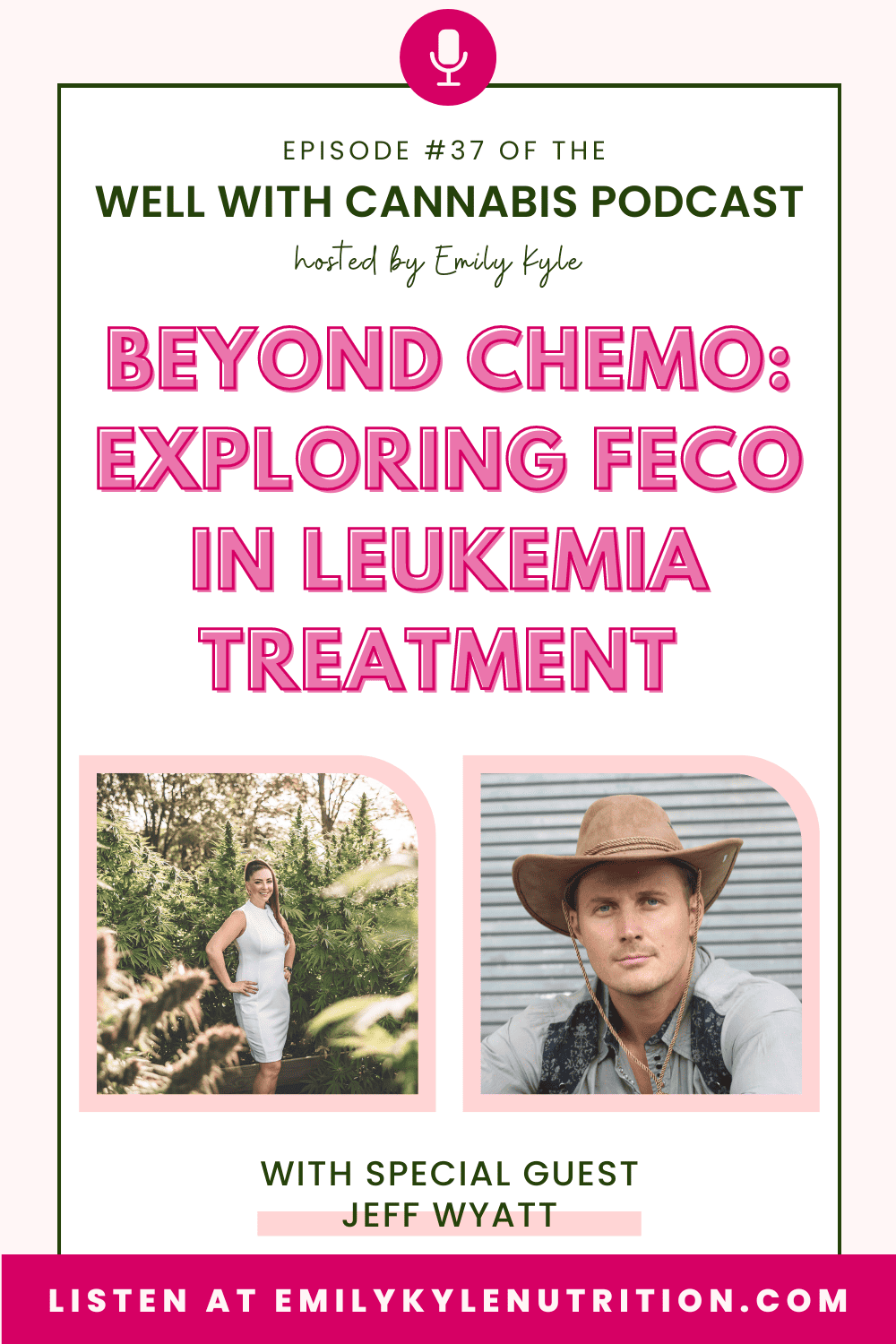
Table of Contents
Features
- Release Date: Wednesday, August 2nd, 2023
- Episode Number: Season 1, Episode 37
- Special Guest: Jeff Wyatt
Listen To The Episode
Click the play button above to listen to the episode.
Listen to all podcast episodes →
Why You Will Love This Episode
Jeff, a brave warrior in the battle against cancer, was diagnosed with Chronic Lymphocytic Leukemia (CLL) at just 45 years old. Facing the daunting prospects of chemotherapy and immunotherapy, he decided to experiment with an alternative path – full extract cannabis oil (FECO).
Jeff shares his experiences and insights from his seven-year journey with cannabis. He used it as a last resort before starting a six-month trial for leukemia treatment. The results were truly remarkable – he achieved almost five years of remission.
Nowadays, Jeff is on a daily oral inhibitor, which he will continue taking until they either cease to work or the side effects become unbearable. His story is not just about survival but also about resilience, exploration, and hope.
Throughout our conversation, we explore the details of his journey, the challenges he faced, the victories he celebrated, and the lessons he learned. We discuss the impacts of CLL, the process of producing and using FECO, and the realities of living with the side effects of cancer treatments.
Whether you’re a patient, a caregiver, a medical professional, or someone interested in alternative approaches to health and wellness, this episode offers a unique perspective on managing a serious illness and embracing life’s uncertainties.
Full Transcript
Jeff: I don’t claim that cannabis is going to cure me or that it’s cured me, but it’s certainly helped me in too many ways to even mention. At this point, it’s probably about the mental stuff, the biggest hurdles, and everything. It was the cancer; as I look back at my journey, it’s been the mental side more than anything.
Announcer: Welcome to the Well With Cannabis Podcast, a show dedicated to telling the life-changing stories of those who live well with cannabis all while teaching you how to do the same. Meet your host, Emily Kyle, a registered dietitian nutritionist turned certified holistic cannabis practitioner. Emily changed her life for the better with the help of the cannabis plant, and now she’s committed to helping others do the same.
Tune in each week to hear heartwarming stories and gain the knowledge you need to feel connected, inspired, and supported on your own cannabis journey. Whether you’re a new cannabis consumer or a lifetime lover, you’ll benefit from these uplifting tales of real-life journeys that will show you how you, too, can live your best life well with cannabis.
Disclaimer: Hi there. Before we jump into today’s episode, I wanted to share a note on potentially sensitive content. The episodes on the Well With Cannabis Podcast are created for adult audiences only. We will, at times, cover sensitive topics, including but not limited to suicide, abuse, mental illness, sex, drugs, alcohol, psychedelics, and the obvious use of plant medicine. Explicit language may be used occasionally. Please refrain from watching or listening to the show if you’re likely to be offended or adversely impacted by any of these topics.
The information on this show is for informational and educational purposes only. It does not constitute medical advice. If any of the content on this podcast has brought up anything for you, please reach out or speak to a professional or someone you trust.
Emily: Hello, and welcome back to another episode of the Well with Cannabis Podcast. I’m very excited to welcome a special guest here with us today. We have Jeff, who is going to talk about his crazy journey with cannabis. Jeff, welcome. Thank you so much for joining us today.
Jeff: Thank you, Emily. It’s nice to be here with you. Thank you so much.
Emily: Now you have a lot to talk about when it comes to your health in cannabis. Can you give us a little background about how this all got started?
Jeff: I’m 60 years old now, and I started out using cannabis back in the 70s and continued it through my school years; not a heavy user, didn’t really get in the way of anything; just grew up with some older kids in the neighborhood and that was my first exposure. And then once I got to be a professional person in my 20s or so, I didn’t really use cannabis. I didn’t have anything against it. I was just a busy working guy, and then everything changed when I got to be in my mid-forties and late forties. I developed leukemia. I didn’t need treatment right away. When I was diagnosed, I think it was about three years before I started treatment.
Emily: I’m sorry. Did you feel unwell? How did you get diagnosed?
Jeff: I felt a lump in my neck. I went and had a biopsy. And it came back with B cell lymphoma. And my blood was just a little off then. But it wasn’t bad. And then, over time it just accumulated to the point to where I got pretty cytopenic and was endemic and thrombocytopenic, low platelets, no, no hemoglobin, low, very low, but anyway, I knew I was close to treatment. If anything, I was overdue. And I read about Rick Simpson oil.
Emily: Yes, that’s how so many people get started.
Jeff: I’m going to give it a try. And I got a big old bag of garden variety hay; trim got the rice cooker out.
Jeff: I didn’t do the isopropyl; I did do Everclear. It wasn’t super strong. Anyway, I did that. I made probably about 40 grams and probably got a 20% yield because I didn’t do any filtering. And then I started doing the little rice thing and didn’t really notice anything. It was hard to consume it. It just sticks to my teeth or my tongue. And I did that for two months.
Emily: What was it like? Did you notice any difference? Did you feel different? How did that go?
Jeff: No, I really didn’t. I think I thought I felt better and everything, but I was pretty deep. My expectations were a little bit high, but what I wanted to get to was that I had a really bad experience. I take this little; I heat it up with a blow dryer and put a little chunk under the roof of my mouth. And they sit there sometimes it is there till noon or most of the day, and then eventually it just disappears.
Jeff: But on this one occasion, I went out to lunch with my son, who was he was a little guy, then my youngest, and I swallowed that little piece. It was stuck to my mouth, and I was just out of it. I couldn’t drive home. I just said, hey, we’re going to hang out here. So that kind of, that was the end of the RSO. I had a, I got a friend, saw me uptown, drove me home. My wife,
Emily: It’s terrible, for anybody listening if you accidentally consume too much THC, you just, you feel unwell. You don’t feel well. Probably was the best decision not to drive home. I’m glad it all ended well.
Jeff: Yeah, but I wasn’t scared or anything. I had used enough cannabis earlier in my life that I knew that it was; I just needed to hang tight for a little bit. Yeah. But anyway, that ended that. And then, fast forward a couple of years, and I started a clinical research trial. They didn’t have much except the standard stuff here in my hometown.
Jeff: I elected to drive about seven hours. So, for almost two years, every 30, every 28 days, my wife and I would drive up, and it was in Oregon, and of course, Oregon had. There are cannabis shops everywhere, different places up there, but when I started taking these chemotherapy drugs, I didn’t really realize all of the pre-meds they gave you and all the stuff they jack you up so that you didn’t have reactions to these drugs, which I had after a while I got used to it and it wasn’t so bad and it became more of a lot of anxiety.
Jeff: Leading up to those days, and I can’t imagine I didn’t have a port, and it was just very, it’s like a, oh, I don’t know, the first couple of deals they. The first couple of sessions were they I felt like I was, everybody was taking care of me but eventually, it set in, and I just got, I just was just, it was just awful.
Jeff: And so, what I did is I bought some of that, stopped at a shop, and I also bought a little Pax. I don’t know if people are familiar with a Pax, but it’s a little it’s a flour vaporizer, and it has a little oven. And it’s, they’re nice little tools. They’re expensive.
Jeff: Yeah. And so, I did that and do that heavy before I go. I liked the parking lot before I walked in.
Emily: I’m sure it helped that anxiety.
Jeff: Totally. A little reaction with the Benadryl because of the cytochrome P450 pathway. But anyway, just fast forward. I did that for I did that, and I just kept doing that and kept doing that.
Jeff: And over the next three or four years, I probably went through three or four of those paxes. Yeah. See, I was a heavy user, but it just they would; they didn’t last that long. They’d break anyway, and then I went back to keep a little pipe above my door in my shop, my office, which is where I am now.
Jeff: And then the COVID thing came around, this is so now we’re like year six, seven past all that, it’s been almost eight years since I had that clinical trial, the whole COVID thing and being older and my lungs and I went to a baby shower for a buddy of mine’s son and met a guy there.
Jeff: Okay. And he was ranting and raving about his Ardent. Ooh. His Arden lift, his little decarb machine, and he had all these; he had a morning, an afternoon, an evening, and a weekend variety. And my wife’s rolling her eyes. I was very intrigued.
Jeff: Within a week or so, I went home, and I got online, and I ordered an Ardent. And that started we went to a dispensary and bought little eights. How fun! And then that’s when I found your site. I don’t know how I was Googling around there, but you had so much information.
Jeff: I really wanted to get into the edible thing. And I just thought, wow, this is something my wife could do as well. She has very bad rheumatoid arthritis. Oh, yes. And bad lungs. She’s had a pulmonary embolism from lack of movement and things.
Jeff: This was something she could do. Boom, that was a hit. Yes. And so, we did the decarb it, and then I put it in like shot glass and added that I was using avocado oil at that time. I avocado oil and then run it again and, filter it all out and do the math and figured I’d get 75% of whatever the rough milligrams of THC were.
Jeff: And then so then, and that, this was probably. Two and a half years ago, maybe three, with a hardened thing. And I don’t know how I started reading more about FECO, and I have a friend who lives about halfway between; I live up in Northern California, about halfway where I live in Lake Tahoe, and has access to lots of cannabis.
Jeff: It’s like free. It’s like a garden; it’s like nothing out here anymore. So, I get these pretty large volumes of cannabis, and oh my gosh, that’s amazing. More than I could really deal with. So, I started making FICO.
Emily: Perfect. I’m just going to stop you just for a second. For our listeners who are like, what is FECO?
Emily: FECO is full-extract cannabis oil, and it’s very similar to the Rick Simpson oil you mentioned earlier, RSO. Both processes utilize a solvent to remove the cannabinoids from the plant material, and it leaves this black, thicky, thick, sticky substance at the end, which is essentially concentrated medicine.
Emily: So just a little intro there for anyone who’s listening and wondering about FECO. But having a ton of cannabis to make it is amazing because many people are discouraged because the yields are small. So, talk a little bit more about where you went next.
Jeff: Now I have all this cannabis, different strains, different, some of the high quality, some of the trim, some of it had some seeds in it, a little bit of this, a little bit of that. And after I went through probably about 500 bucks of ethanol, I was like, okay, so I bought a still a little distiller. And I don’t know, that was a few hundred bucks.
Emily: But it saves you in the long run, right?
Jeff: Yeah, and then I invested a little bit more money. So, as I’ve done this, this is just for personal use and friends, but I probably made like 250 mils, 250 grams.
Emily: Wow, that is a ton! You are an expert.
Jeff: And it’s I’ll get to this in a minute. Most of it I use in body butter now because you can’t use that much, but you can put a lot on your skin if you do it right. I invested in that and a good filtration system; these products do the whole thing for you.
Jeff: And that just wasn’t really me. I’m a little more. And I already had some lab equipment, beaker sets, magnetic stirrers, hot plates.
Emily: It’s fun, isn’t it? It’s like a mad science experiment at your house. Yeah, and I have space. It’s perfect.
Jeff: And I really got into that, and what I’ve learned over the last, since I’ve started doing it until now, is just the filtration and the length of time that the ethanol sits, the length that it soaks.
Jeff: And of course, the… The whole the whole freezer thing and trying to reduce those,
Emily: Do you want to walk us through your process? Because I’m sure there are so many people who are like, tell me everything.
Jeff: Sure. So, what I use you could use smaller, but I use the 64 ounce, the large mason jars. And I use those screens, like you were growing mushrooms on the top, like a screen.
Jeff: Okay. And so, everything goes in the freezer and I put about 100 grams in each one of those 64-ounce jars, and that all goes in the freezer. And then, after a few days, I’ll pour the ethanol in those jars and do three jars. So, I’ll do 300 grams of flour at a pop, and it usually gets somewhere around almost five liters of alcohol, and the still holds about four.
Jeff: But anyway, I’ve been doing quick ones. I do quick ones, like 15 minutes in the freezer, and then I save those, and then I, when I drain it, strain it, rather, I put the screen lid on the top. Okay, oh, smart. And then I pour it into over a yogurt bag, and through a strainer, boom, and then after that, then I go and winterize it, and Buckner filter it down to 10, 25 microns, and then a 10, and then I use some syringe filters.
Jeff: I got to the less that I get; you really can’t; you could let it sit in there. Quantifying how much you’re getting is hard because of the process. But you go by the color. And for me, I take the time now, and I do the quick one, and then I save those jars, and I’ll run those again, and then, and you almost get more the second time.
Jeff: Interesting. And it’s much more sedative, that heavier that stuff, if it’s just if that’s the effect of the waxes and the fats and the chlorophyll or and the taste isn’t quite as good. So I’ll go for that first cut, do that really quick, and then as a whole bunch of jars builds up, I’ll do the second one, but, yeah, and then so with that, and then as it’s, and then I’ll use a magnetic stir, so I’ll take it down to about 80% and that still, that alcohol distiller, about 80%, and then I’ll pour it into a Pyrex and put it on a hot plate outside my shop, of course, where it’s well ventilated. And I’ll take that down all the way until all the alcohol’s gone, and when all the alcohol’s gone and quits bubbling, then it’ll start the decarb bubbles, and I’m still spinning it as I’m doing this.
Jeff: And then eventually, it just gets perfect. It just gets like honey. There’s not one, and then before it sets up, I’ll keep it down to about 125 degrees by then. And then I’ll pull it up on the syringes, label it, and put it in bags. And then from those syringes, then I use it either mixing with MCT oil and lecithin or mostly now in the body butter.
Emily: Let’s talk a little bit more about the body butter because that’s the first time I’ve heard of FECO being used like that.
Jeff: Yeah, if you think about it, trying to put, I suppose you could put powder or gran, or you could strain it out and filter it out your, the old-fashioned way with the art, which is a good way.
Jeff: But you can’t get that much in there. It’s just hard. Yeah. So, with a fecal, what I do is melt the butter. I’ll use shea, mango, and cocoa and melt those. I’ll take the oils in a water bath and then over on the hot plate in a beaker. I use jojoba, baobab, sweet almond, those are, rosehip seed, calendula, arnica, and some of those, and I’ll put that in a beaker and get it warm, and then heat up that fecal with a blow dryer.
Jeff: Yeah, perfect. And I can get, and you don’t even realize it’s on your skin after, I don’t know. It’s just hard. It’s perfect. So, I made a batch the other day, and I made 48 ounces. How? So, I would make 12 cans and put 20 grams of FECO in there.
Jeff: I’ll send you a video of those. And it’s white. Like when I add the FECO to the oil. It turns the oil, golden oils, and jojoba oils, almost looking like root beer, like dark, dark, because of the FECO, and then, of course, and it’s and it’s concentrated as well. And then, by the time it’s all mixed with the butter, and I started whipping it.
Jeff: Hours later, it’s like white.
Emily: Oh beautiful. Oh my gosh.
Jeff: But that stuff’s the bomb with my wife and her friends.
Emily: It’s great. I was going to say, who uses it and for what?
Jeff: I have bad skin, so I have a compromised immune system, and I have a history. I’ve had bad skin cancers. I was on a swim team as a little kid.
Jeff: in California. I’m pasty white from ancestors from Ireland. So, I wasn’t meant to be out here and then farming. So, my whole life, I’ve been in the sun and had many surgeries for squamous and basal cell carcinomas. I haven’t had any melanomas knock on wood. But I have, really; I see a dermatologist every three months.
Jeff: Oh, good. Just to get checked and scanned, and so I use almost, I use probably two cans a week. Eight ounces. I use those little four-ounce tins. So, my wife and I probably use three to four a week. Does it help her with her rheumatoid arthritis as well? Oh, no, with her arthritis.
Jeff: Sometimes I’ll add alpine or some things that aren’t good for my skin. Yeah. So much, a little bit hot moderate flower oil. Some things to heat it up in the winter a little bit. It’s good for her knees.
Emily: Oh, I’m so glad that it helps you both. And then you said she shares it with her friends as well?
Jeff: Yeah. No, she’s. I’ve got a couple of male friends that come and get six or eight at a pop. Some people insist on paying for it, but I give it away. Same thing with the little bottles of oil.
Emily: That’s so nice of you. Oh, that’s so sweet.
Jeff: Yeah, no, I’ve. It’s just that I started buying what I started doing with the MCT, was I started making it a little bit stronger. So, I’ll use it. A full gram of FECO in a 15-milliliter bottle and a half-ounce bottle. That is strong. Yeah, so that’s, and then I use these droppers with marks on them.
Jeff: Quarter, half, 20 drops is a mil. So, we’re talking drops here for the average user here. Five drops. Just a few. Yeah. Five drops are. No full drop. So that’s how I’ve been using it. I started, not going quite as heavy. But then I had to consume more of it, and I didn’t really like the taste.
Jeff: And one other thing I found is that it is not decarbing it.
Emily: I heard you mentioned that with the hot plate at the end. I’m super interested.
Jeff: in that. Yeah. No, if you just do a little bit, just make sure though, when you, after you cook off, so after you distilled and you get most of your alcohol back, and you’ve reclaimed and then take that small amount.
Jeff: And as if you were going to stick it in a rice cooker but stick it in the hot plate on the hot plate over. Yeah, let’s say you had maybe 50mL in there. Let’s say you had 100 mils of still a tincture with alcohol in it. Make sure your beakers are six to eight times that size. Because when it bubbles, it’s going to bubble up high and sit there with a thermometer and infrared thermometer and watch it.
Jeff: And once all the alcohol is gone, you get it up over 200 degrees. 210, it will start bubbling, doing its decarb thing, and you can watch it. So, it’ll tell you, this one took 225 or 230, or it took this long, and it can, it can take quite a while.
Emily: Does it stop bubbling when it’s done?
Jeff: Yes, it completely stopped bubbling. But they’re aggressive bubbles. Oh, it’s like foam.
Emily: That’s so cool; I feel like I need to get all these science experiments.
Jeff: Yeah, because when I did this stuff first, it was just hard, the alcohol. Wash after the wash was just never crystal clear. Like very light, light, like a light beer. So instead of a dark beer, it didn’t look like a Guinness, but it looked like a pale ale or something.
Emily: So then also the other thing was the lesson. Share all your tips with us.
Jeff: I love learning. I think the liquid is just gnarly. It’s just, it just, the taste is just molasses. It’ll ruin the nicest-tasting flower you’ve ever had. So, I still got a bottle of that, but I’m not using that anymore. The powder is good, and it’s pure. It just, I found leaves a little bit milky, the residue, but it’s good.
Jeff: And then those, the tablets. I like tablets. I squeeze those in on a soft gel tablet. Put it in a little shot glass and put it on a coffee warmer. And just let it melt, and then I suck it up in a syringe and do it that way. I think it’s got some other stuff. It’s got some olive oil and put it just. It’s just cleaner and doesn’t taste bad.
Emily: That’s a good tip for a lot of people because liquid can really be a lot.
Jeff: Yeah, so that’s where I’m at. And I’ve been doing the oral thing now for, like, I say, three years. No smoking.
Emily: So, how are you feeling today with cannabis in your life? Where are you at health-wise?
Jeff: I took a pill, and this cancer came back. I got about, Four years of remission after that trial I was telling you about, and I take a pill now twice a day, thank God for my wife’s insurance. I don’t claim that cannabis is going to cure me or that it’s cured me, but it’s certainly helped me in too many ways to even mention. Going back to all the nausea pills, I had first, second, and third-degree types of nausea all the way up to Ativan. Some bad stuff.
Jeff: And then when I finished the treatment, they gave me SSRIs, antidepressants, and I didn’t take them. I threw them out the window. And I’m an anti-drug, prescription guy. Yeah. Never any antibiotics or anything. I don’t think I’m a weirdo that way, but I’ve seen some people and some family members that had some bad things from overdoing antibiotics in terms of their gut biota.
Jeff: And leading to some other ailments, but for me, at this point, it’s more probably about the mental stuff and the biggest hurdles and everything, it was, and cancer as I look back and my journey is, has been the mental side of it. And you just, it beat you up mentally to where you can’t do much.
Jeff: When you don’t do a lot, you don’t feel so good about yourself. And that’s been, that, that has been tough for me. So that’s, and then my appetite, I’m skinny. I have a hard time keeping weight on. So, sleep my stomach issues and bowels with this medicine I take.
Jeff: And just putting me in a better frame of mind.
Emily: It’s just that’s what when you’re going through something so difficult to have something that can help your state of mind, I’m so happy that you have cannabis on this journey with you.
Jeff: Yeah, you really helped me. Otherwise, I don’t know. I don’t know. If I had taken it this far, kept it, made a hobby out of it.
Emily: You made a lifestyle out of it, and now you’re helping other people as well, which, to me, warms my heart. That makes everything worth it, and I’m so glad you’re here sharing your story as well because I hope it’s going to reach even more people and help them.
Emily: And I love what you said about it might not cure my cancer, but it helps me feel better as I go through this, and I think that’s an important message for people listening here. Thank you for sharing that with us.
Jeff: Sure. To keep going on that, I’ve always told my doctors.
Emily: Will you talk a little bit about that? Because people are afraid of that.
Jeff: Sure, yeah, one of my, one of my first oncologists, he’s gone now. He was over in Eureka over in Arcata, which is over in the Emerald Triangle where the, you’re the Cannabis Triangle. So, he was he thought it was nuts, and I’m going to get Aspergillus, I’m going to get some bad fungus and anyway.
Jeff: But he retired, and I’ve got a new doctor and, but I’ve always told my doctors there are some interactions, you certainly want to be upfront for sure. When I did finish the trial, I was also neutropenic, which means very low white blood cell counts. And I was depressed about that, and when I told my local oncologist that they set me up with a, they have a psychiatrist in the Cancer Institute, local Cancer Institute, Stanford guy, nice guy, and I told him, I just get tired in the afternoon, I just don’t, I don’t have a lot of energy, or, what’s he do?
Jeff: He prescribes me methamphetamine salts. What? No, no kidding. But it was very light amounts. He was very light amounts, but nonetheless, I took a little bit, and I was just like, this is a this is not I; that lasted about a week, and he gave me something else to help me, rely on this and that.
Jeff: So one of the questions you asked me earlier was, where would you be without cannabis? And I don’t want to say I’d be a prescription drug addict because that’s not me, but I’m sure I would have taken some of those things because I wouldn’t have had this crutch to help me to keep me up. I wonder what that would have done to my physical, the effect on my body, my bowels, my stomach, my bacteria, everything. Yeah, I know it’s really helped me a lot.
Emily: I’m so glad, and thank you so much for sharing that with us. As I said, I really hope anybody who’s listening, especially if you are going through cancer treatment, can just…
Emily: Really listen to everything you’re saying and take it to heart and know there’s something out there that might help you find that little piece of relief, and I just feel like everybody deserves that, and so I’m thankful you’re sharing your story here with us and we just touched on one of the four questions I ask all my guests.
Emily: Are you ready for the next three? Sure. Awesome. So, the first one is, what are you most proud of in your life to date?
Jeff: On this day or point in my life, I would answer that by saying I’m most proud of my relationship with my wife. I’ve been with her for almost 35 years, and if you asked me 10 years ago or 15, I might have said my kids or something like that, but we just, we’ve been through a lot, and we’ve helped each other, and we’re, we’ve grown a lot and I just, I’m really proud too that’s the most important thing in my life is my marriage to my, and so that’s a no brainer.
Emily: That’s beautiful. Now I do ask guests a lot often. Do you find that cannabis helps your relationship with your
Jeff: spouse? Yeah, I’d say yes, it helps. I never really thought about it like that. It’s something we do together. We make things together we dose together in the evenings. At times I usually do it twice a day.
Jeff: I do a little bit in the morning, a little micro in the morning, and it’s more uplifting. It’s not so much the product; it’s just me and that time of the day. And then I’ll do the four or five o’clock thing, which is what she does. And then we have a nice dinner, the evenings are good, and we sleep well.
Jeff: Yeah. If you’ve never slept well, then the importance of good sleep. If you’ve only if you’ve never had a problem, then you probably take it for granted. But the sleep and the food for me is huge.
Emily: I bet. And then to be able to enjoy a meal together, enjoy dinner together, go to bed together. It’s a beautiful thing.
Emily: I’m so glad that you answered that. Thank you. Our other question is if you could go back 10, 20, or 30 years ago and give yourself a piece of cannabis-related advice, what would it be?
Jeff: Gosh, I wish I could go back, even back in the recreational day, and I’ve had the, learned about edibles, and had the, the, to be able to have the ability to get really accurate dosing.
Jeff: Down to the drop type of a thing, rather than make brownies or this or that or all those experiences were never the same. You held your breath. You didn’t know what the hell, how you were going to feel. It was like, go raid Dad’s freezer, Mom and Dad’s freezer in the early seventies with their quick Creek weed.
Jeff: You just, we never knew. But yeah, I didn’t know that question was cannabis related.
Emily: It doesn’t have to be. I sometimes I’ll go that way. Do you have a different answer?
Jeff: If it wasn’t cannabis, I was going to say that I wish I could have gone back, and I didn’t work quite so hard when I was younger.
Jeff: Yeah. I didn’t beat my body up so hard. And I just slowed down. Yeah, as I look back because a lot of those days and times with my kids and things are gone now, I’m at another phase of my life.
Emily: It’s perfect advice, cannabis-related or not. Now, very last question if you could be remembered for just one thing in the cannabis space, what would it be?
Jeff: Always trying new things experimenting and sharing. Trying new things and sharing with all my friends and family and that somebody that was intelligent about this and not some pothead that sits on his ass and doesn’t do anything. But somebody that’s a real person that’s very productive and has happy and healthy relationships and has been through a lot. And there’s just trying to break that stigma a little bit.
Emily: That’s beautiful. And you’ve done exactly that here today. I can’t thank you enough for coming, sharing your story and wisdom.
Emily: It’s my goal that someone here listening will listen and benefit from you being so open and brave. So, thank you so much for coming to the show today. Any last words of wisdom for our listeners?
Jeff: No, I think now, with the blogs and things like you have your community or communal community space, and that’s where you can really learn a lot.
Jeff: That’s what I would encourage people that don’t have a lot of experience before they rush down to their local dispensary and buy what’s on the shelf or whatever the tender there. You need to get out and talk to people, and I think your forum is a great place for that.
Jeff: That’s where I’ve learned a lot about cancer drugs and things over the years, and it enters cautiously and has good experiences and how important it is to underdose and go slow with edibles is, I can’t overstate that enough wisdom that is possible. That’s why the FECO is good for me because I can really get it accurate. Everything is on a scale right down.
Emily: Thank you so much for sharing everything that you have. I appreciate your time. I wish you the best of luck on your journey, and thank you for sharing with us today.
Jeff: Thank you, Emily. It’s been a pleasure. Thank you.
Announcer: Congratulations, you’ve finished another episode of the Well With Cannabis Podcast and are one step closer to discovering how you, too, can live well with cannabis.
Thank you for listening in today. We hope this episode has been a helpful and informative one. Please visit emilykylenutrition.com for more information on today’s show, show notes, guest information, recipes, and other resources.
If you want more support and encouragement on your cannabis journey, please consider joining the private Well With Cannabis Community. In this group, you can connect with like-minded individuals focused on improving their health and wellness through cannabis.
Join the group today to continue your journey of wellness together!
Related Episodes
Podcast Episodes
From Chronic Pain Survivor to Passionate Cannabis Advocate
Podcast Episodes

